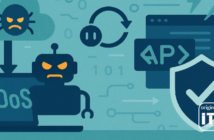Early-stage founders and managers of new tech companies understand intellectual property (IP) matters.
The problems come when a founder or manager needs to explain how their intellectual property is protected – or protectable, at least. Investors, for one, will ask about it, so it’s best to be at least a bit savvy.
Let’s take software companies. Software is usually a mix of different assets that account for the backend and frontend. Back-end usually means source code (your factory), front-end is about graphic design and user interface (your shop). They come together to create your end product.
When protecting your software, you need to understand three things: what assets are part of your product; who created them; and what avenues of protection are available.
What assets are part of your product should lead to a list of modules and deliverables that are currently live or in development. Who created them means all the individuals and companies (and their employees and/or collaborators) that took part in the creation of those assets.
But what avenues of protection are available depends on answering all or most of these questions:
- What led you to ask this question? If it’s an EU financing requirement, there may be specific IP rights that are being sought for protection in your company
- What industry are you active in? Deep-tech, state-of-the-art GenAI or biotech products have a lot to gain by assessing patenting possibilities rather than thinking about more minor IP rights
- What stage is your product in? If you’re past the factory stage and are already with a shop set-up, patenting may have become impossible for you, because your work is already public and not new anymore
- Where’s your highest risk if you don’t protect IP soon? If it’s coming from collaborators that you plan to stop working with, full and complete IP assignments from them should be high on your to do list.
IP protection, regardless of its format, is about first understanding what IP means for your business.

Tudor is a tech lawyer with over 10+ XP, having co-founded the oldest continually active Romanian law firm that works exclusively on tech projects (part of Ventures’n’Law). Previous community builder in the space of legal and fintech, having founded and led the Romanian Fintech Association.





